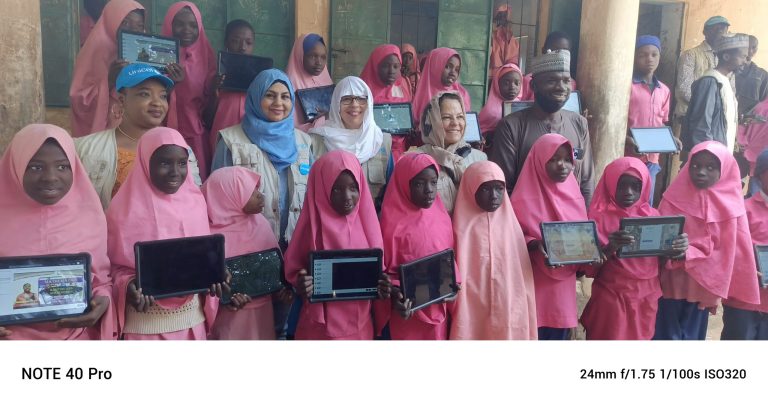The Bauchi State Government has been urged, as a matter of urgency, to commit more investment to the education sector, particularly basic education, in order to accommodate the growing number of children aspiring to attend school.
The call was made by the Nigerian Representative for the United Nations Children’s Fund (UNICEF), Cristian Munduate, while fielding questions from journalists after visiting Gyamzo Central Primary School in Toro to assess the UNICEF-supported Nigeria Learning Passport (NLP).
The UNICEF Representative expressed optimism that with increased investment in the basic education sector, the growing number of out-of-school children could be drastically reduced.
According to her, “In total, in Toro LGA, what I have found and learned today is that the entire local government, for example, has more than 138,000 children of school age in primary school. There are around 380 schools, which gives an idea of how to plan for it.”
ALSO READ: Frivolous petitions against judicial officers to attract consequences, CJN warns
She added, “How many children are able to go to school? We see that here, children are attending school, but there are some classrooms that are empty. These classrooms are empty because of a lack of teachers. They are empty because the classrooms require significant investment, and at times they are empty because of security issues.”
Cristian Munduate further stated, “In this case, we are making a very urgent and serious call to the state authorities, asking them to visit the conditions of schools at the different local government levels, so they can see firsthand the situation of the children and understand why they cannot be educated.”
She continued, “That needs to be addressed. You need support, but we have to understand that the primary responsibility of government is to be accountable and committed to providing education to children at the state level.”
However, she stressed, “UNICEF is not here to take over other responsibilities. We are here to complement and support the efforts that are already in place. This is important for people to understand, and for them to urge the government to allocate more resources to educate their children properly.”
“We have plans to provide tablets for the NLP and support the program, but this is not enough if the other components are not in place. It’s not about how many tablets we have; it’s about how we can make a significant investment in education and ensure quality education for children.”
“With 138,000 children being covered by only 386 schools, the numbers don’t add up. Many classrooms remain unoccupied because the roofs are falling apart, there are no boards, and there are no places to sit. There are no teachers. We cannot provide everything, but it won’t work if the other pieces are not in place.”
The UNICEF Representative also visited Tudun Wada Primary School in Miyabarkatai, where she assessed the WASH facilities and commended the school authorities and local government for their efforts.
She assured that UNICEF will continue to support and intervene where necessary, as its main mandate is the welfare and well-being of women and children.
Get real-time news updates from Tribune Online! Follow us on WhatsApp for breaking news, exclusive stories and interviews, and much more.
Join our WhatsApp Channel now
